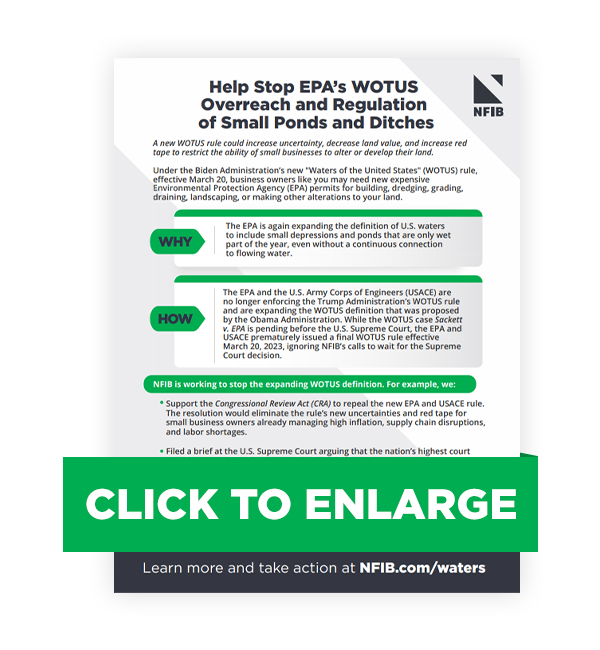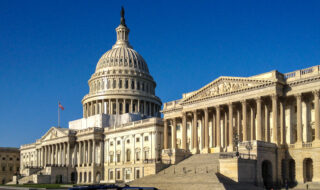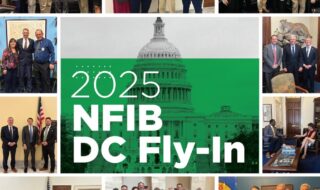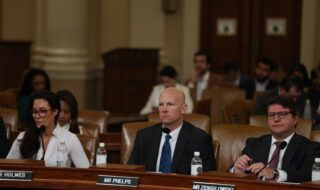Topics:
March 2, 2023
Legal Center Executive Director Beth Milito pens a new op-ed in National Review
How the EPA's 'Waters of the United States' Rule Hurts Small Businesses
 The new ‘Waters of the United States’ (WOTUS) rule “is a brazen example of federal overreach that will hurt America’s ranchers, farmers, and home builders,” writes NFIB Small Business Legal Center Executive Director Beth Milito in a new op-ed published by National Review.
The mandate, which is based on the 1972 Clean Water Act, gives the Environmental Protection Agency (EPA) jurisdiction over “navigable waters.” However, the EPA has interpreted this to mean any water, which will add an unprecedented burden to small businesses that own and use land with almost any water on it. The rule does not define what waters are covered, and figuring out what is included can only happen on a case-by-case basis, leaving small businesses with profound uncertainty.
“The new mandate has these property owners wondering if they need to get federal permits before moving forward with even the most basic upgrades and investments,” Beth writes. “If a farmer or rancher wants to fill a ditch that floods when it rains, do they have to ask the EPA? If a home builder wants to build a home on land with a small stream that runs for only a few weeks each spring, do they need to jump through a costly series of government hoops?”
The EPA’s new rule states that “this rule will not have a significant economic impact on a substantial number of small entities,” but this claim is disputed by farmers, ranchers, home builders, and golf-course owners. When such uncertainty over water reigns, investment dries up.
“What if a small business does need a federal permit under the new mandate? Well, then they have to pay for the privilege, in both money and time,” Beth adds. “A 2002 study found that Clean Water Act permits cost an average of $270,000 and take more than two years to obtain. If anything, those staggering costs have grown in the intervening years, and small businesses naturally struggle to afford them.”
The EPA issued this mandate effective March 20, 2023 even though the Supreme Court is currently deciding a case that could render it null. The mandate should be seen for what it is: anti-small business, anti-growth, and anti-freedom. It’s not too late for Congress to repeal it, or the Supreme Court to overturn it.
For years, NFIB has actively fought for small business owners’ rights against government overreach on this issue. If your business has suffered as a result of Clean Water Act mandates, tell us your story here.
The new ‘Waters of the United States’ (WOTUS) rule “is a brazen example of federal overreach that will hurt America’s ranchers, farmers, and home builders,” writes NFIB Small Business Legal Center Executive Director Beth Milito in a new op-ed published by National Review.
The mandate, which is based on the 1972 Clean Water Act, gives the Environmental Protection Agency (EPA) jurisdiction over “navigable waters.” However, the EPA has interpreted this to mean any water, which will add an unprecedented burden to small businesses that own and use land with almost any water on it. The rule does not define what waters are covered, and figuring out what is included can only happen on a case-by-case basis, leaving small businesses with profound uncertainty.
“The new mandate has these property owners wondering if they need to get federal permits before moving forward with even the most basic upgrades and investments,” Beth writes. “If a farmer or rancher wants to fill a ditch that floods when it rains, do they have to ask the EPA? If a home builder wants to build a home on land with a small stream that runs for only a few weeks each spring, do they need to jump through a costly series of government hoops?”
The EPA’s new rule states that “this rule will not have a significant economic impact on a substantial number of small entities,” but this claim is disputed by farmers, ranchers, home builders, and golf-course owners. When such uncertainty over water reigns, investment dries up.
“What if a small business does need a federal permit under the new mandate? Well, then they have to pay for the privilege, in both money and time,” Beth adds. “A 2002 study found that Clean Water Act permits cost an average of $270,000 and take more than two years to obtain. If anything, those staggering costs have grown in the intervening years, and small businesses naturally struggle to afford them.”
The EPA issued this mandate effective March 20, 2023 even though the Supreme Court is currently deciding a case that could render it null. The mandate should be seen for what it is: anti-small business, anti-growth, and anti-freedom. It’s not too late for Congress to repeal it, or the Supreme Court to overturn it.
For years, NFIB has actively fought for small business owners’ rights against government overreach on this issue. If your business has suffered as a result of Clean Water Act mandates, tell us your story here.
Get to know NFIB
NFIB is a member-driven organization advocating on behalf of small and independent businesses nationwide.
Related Articles

July 2, 2025
NFIB Key Votes One Big Beautiful Bill Act in U.S. Senate and Ho…
NFIB key votes the One Big Beautiful Bill Act in the 119th Congress and urg…
Read More


July 2, 2025
Small Business Owners Push Priorities in Capitol Hill Meetings
Over 80 small business owners attended NFIB’s annual Fly-In. They attende…
Read More



July 2, 2025
Small Business Owner Testifies Before U.S. House Committee on W…
Virginia NFIB member and small business owner Joshua Phelps spoke to the U….
Read More







